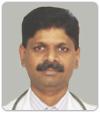Was Told To Have Beginning Of Cervical Spondylosis Also Have Middle Ear Catarrh. Related?

Both of your symptoms are not related.
Detailed Answer:
Hi, thanks for writing to XXXXXXX
There is no association or relationship between Cervical spondylosis (CS) and middle ear catarrh.
In most cases, cervical spondylosis causes no symptoms. When symptoms do occur, they typically affect only the neck — causing pain and stiffness.
Treatment for cervical spondylosis depends on the severity of your signs and symptoms.
The general treatment guidelines for CS are as follows -
* Physical therapy - Strengthening and stretching weakened or strained muscles is usually the first treatment that is advised. Your physical therapist may also use cervical (neck) traction and posture therapy. Physical therapy programs vary, but they generally last from 6 to 8 weeks.
* Non-steroidal anti-inflammatory drugs (NSAIDs) - are thought to be the most effective painkillers for symptoms of cervical spondylosis. Some commonly used NSAIDs include - Diclofenac, Ibuprofen and Naproxen.
If you experience spasms, when your neck muscles suddenly tighten uncontrollably, a short course of a muscle relaxant may be needed.
* Exercise and lifestyle changes -
- doing low-impact aerobic exercises such as swimming or walking
- using one firm pillow at night to reduce strain on your neck
- correcting your posture when standing and sitting
* Soft Collars -These collars limit neck motion and allow the muscles of the neck to rest. Soft collars should only be worn for short periods of time because long-term wear can decrease the strength of neck muscles.
* Ice, heat, other modalities - Use of ice, heat, massage, and other local therapies can help relieve symptoms.
Hope I have addressed your query. Happy to help further
Regards
Answered by

Dr. K. Naga Ravi Prasad
Orthopaedic Surgeon, Joint Replacement
Practicing since :1996
Answered : 2148 Questions
Get personalised answers from verified doctor in minutes across 80+ specialties



